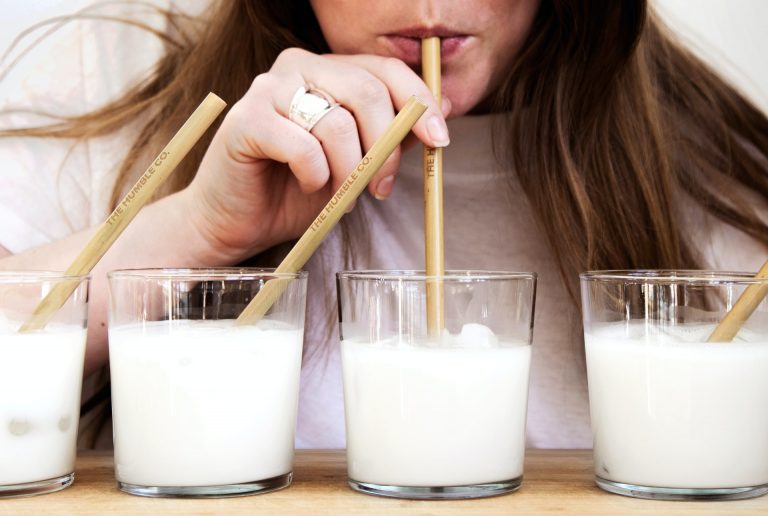Types and health and taste values of plant-based beverages
Coconut, almond, soy—vegetable drinks in various flavors have appeared on store shelves. They're an alternative to conventional cow's milk. What exactly are they, how are they made, and what do they really have in common with milk?
Plant drink – what is it?
Plant-based beverages are often referred to as "milk" due to their use and appearance. However, you should be aware that this is a colloquial term reserved for a product of animal origin. According to European Union regulations, the term "plant-based drink" has been in force since 2007.
A plant-based beverage is made by soaking, blending, and sifting nuts, grains, seeds, or seeds from various plant products. These can include almonds, coconut flakes, oats, spelt, or rice. Although it's not technically milk, it can successfully replace cow's milk. What plant-based beverages are there, which are the healthiest, who can drink them, and what are they made of?
The most popular plant-based drinks
- Soy drink – of all plant-based beverages, it contains the most protein and calcium, making it the most similar in composition to cow's milk. It also contains less sugar than, for example, coconut or almond milk. Of all plant-based beverages, soy drink contains the most B vitamins.
- Coconut milk is a perfect substitute for cow's milk in the kitchen. Its uses are versatile – it's suitable for coffee, breakfast cereals, cocktails, baked goods, and many other dishes, even soups. It's thicker and creamier than soy milk and has a pleasant coconut flavor. It's also one of the most calorie-dense plant-based beverages, containing a lot of fat and relatively little protein.
- Rice drink – it's sweet and contains the most carbohydrates among popular plant-based drinks, as rice grains contain a lot of starch. Its sweet taste makes it ideal for desserts and baked goods. It's an alternative for people who can't drink soy, nut, or almond drinks due to allergies. However, it's not recommended for diabetics, as its glycemic index is 90. Rice drink is rich in vitamins B1, B3, and B6.
- Almond milk – It's relatively low in calories compared to other plant-based beverages. It's high in monounsaturated fat. It's a perfect drink for coffee if you like almond flavor and aroma. It froths easily.
- Oat milk – Among the most popular plant-based beverages, oats contain the most fiber. Oat milk may contain beta-glucans derived from oats, which have a positive effect on the cardiovascular system.
Each plant-based drink, whether coconut, almond, or soy, differs in its micro- and macronutrient content. Nut drinks contain more vitamin E than soy drinks. Oat drinks contain more beta-glucans, which have a positive effect on immunity. The vast majority of plant-based ready-to-drink beverages are fortified, meaning they contain calcium, B vitamins, and vitamin D. These drinks are readily available today and can even be prepared at home. They are an excellent substitute for cow's milk for people who cannot consume conventional cow's milk due to food allergies, as well as for vegans and vegetarians.
THE PUBLISHER'S CHOICE
Dried plums 1 kg BIOGO
- €7,01
- €7,01
- Unit price
- / per
Dried White Mulberries 500 g ORGANIC
- €5,84
- €5,84
- Unit price
- / per
Almonds 1 kg BIOGO
- €11,69
- €11,69
- Unit price
- / per
Cranberries sweetened with apple juice organic 1 kg BIOGO
- €16,37
- €16,37
- Unit price
- / per
Dried dates 1 kg BIOGO
- €4,21
- €4,21
- Unit price
- / per
Unpeeled buckwheat groats 1 kg BIOGO
- €2,81
- €2,81
- Unit price
- / per
Walnuts 800 g BIOGO
- €8,65
- €8,65
- Unit price
- / per
Peeled sunflower seeds 1 kg BIOGO
- €3,04
- €3,04
- Unit price
- / per
PULLED ORGANIC SUNFLOWER SEEDS 1 KG BIOGO
- €4,44
- €4,44
- Unit price
- / per












































































































































